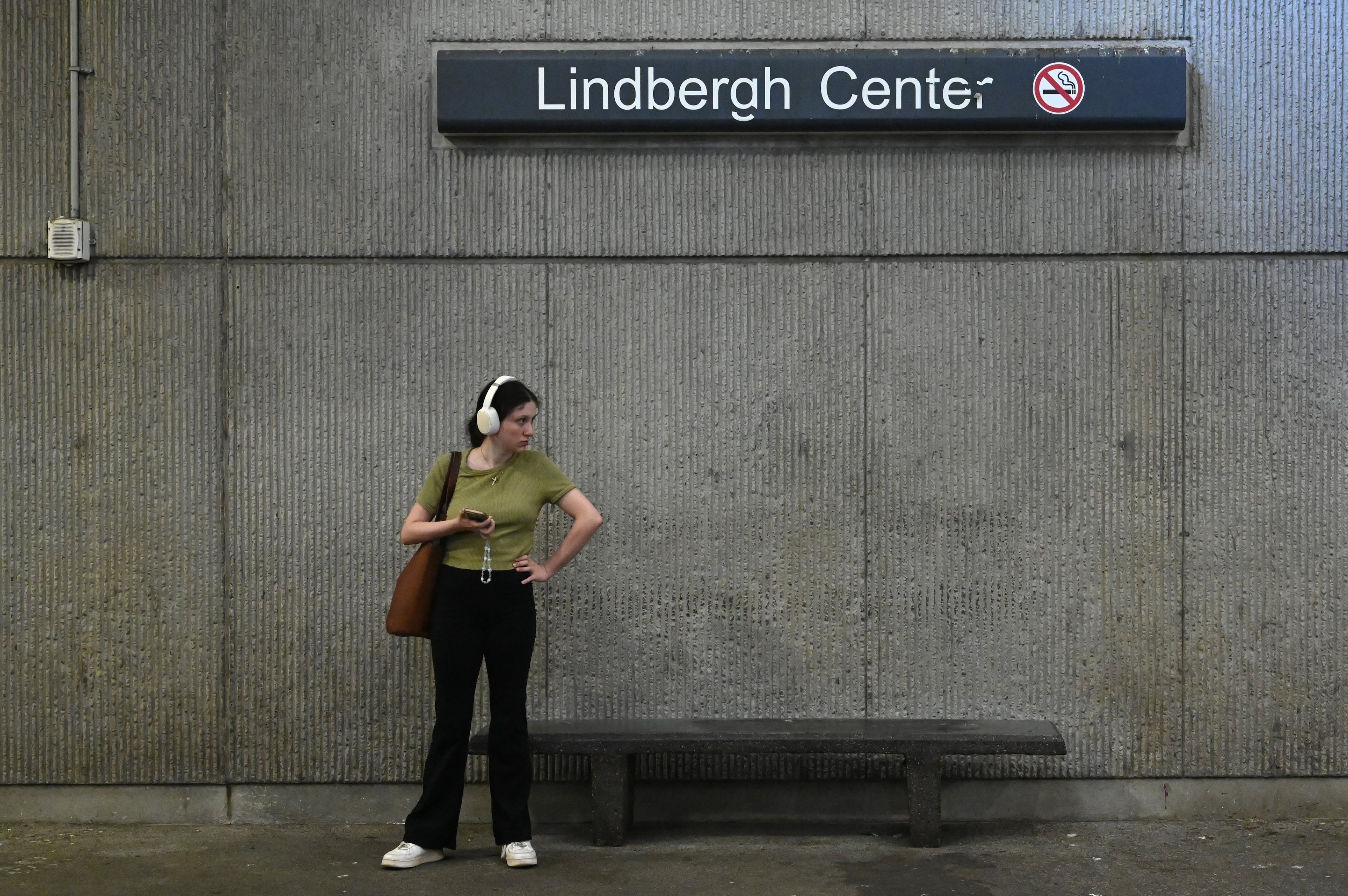Johnson a beloved figure in Atlanta sports history
When the Atlanta Braves held “Ernie Johnson Appreciation Night” before a 1989 game, the team drew its largest crowd in two years.
Such was the affection for Johnson, one of the more beloved figures in the city’s pro sports history.
A native of Vermont and a Braves pitcher when the team was based in Boston and Milwaukee, Johnson became an Atlanta icon as a Braves broadcaster from the 1960s through the 1990s. In a career that spanned from transistor radios to wide-screen televisions, Johnson called more than 4,000 Braves games, exuding a love of baseball and a gentle good humor in each one.
Ernest Thorwald Johnson Sr., a member of the Braves Hall of Fame, died Friday at the age of 87.
Johnson came to Atlanta in 1965, one year before the Braves moved here from Milwaukee, to do advance public-relations work and set up a radio network. Over the next three decades, he became — even in the estimation of his fellow broadcasters — the voice of the Braves, although the humble Johnson always resisted that singular designation.
“We’re all the voices of the Braves,” he would say, referring to himself and his broadcast partners.
A member of the organization for more than 50 years, Johnson was inducted into the Braves hall in 2001. Etched on his plaque: a microphone. At the induction ceremony, long-time colleague Pete Van Wieren called Johnson “the man who set the standard for broadcasting baseball in Atlanta.”
Johnson combined his knowledge of the game with a soothing, folksy style to introduce major-league baseball to Atlanta and the South. He said he approached broadcasts as if he had been invited into fans’ living rooms. He mixed storytelling with play-by-play.
He called countless home runs by Hank Aaron, including Nos. 500, 600 and 700 of Aaron’s career. He also called countless losses by the Braves, a bumbling organization through most of the 1970s and ’80s, without ever losing his signature optimism and good cheer.
At old Atlanta-Fulton County Stadium, Johnson always kept a fishing net handy, using it to try to snag foul balls that came in his direction. Fans would turn toward the booth and cheer in an era when ballpark entertainment was so much simpler.
Johnson and broadcast partners Van Wieren and Skip Caray developed a larger following in the late 1970s and beyond, after the Braves became the first team to televise games nationally on a cable superstation. In fact, it was Johnson who first referred to the Braves as “America’s Team” — a label that came to define the franchise for a couple of decades.
Born in Brattleboro, Vt., on June 16, 1924, Johnson was a multi-sport athlete in high school and was recruited by Colgate for football and Yale for basketball. He opted instead to sign a $125-per-month minor-league contract with the Boston Braves at age 18 in 1942.
He was away from baseball the next three years after joining the Marines and participating in the Okinawa invasion during World War II. A half-century later, the Marine Corps flag flew atop a pole in his front yard.
Back in Brattleboro after the war, Johnson met Lois Denhard, a cheerleader at his old high school. They celebrated their 63rd wedding anniversary on Nov. 15.
“He was in the service when I moved to Vermont,” she said Saturday. “I didn’t meet him until 1946. He came home from the service. He came to a basketball game, and I was still in high school as a senior.
“He was sitting up in the balcony with one of his dates. We cheerleaders were jumping up and down doing our cheers, and I looked up in the balcony and he looked at me and we both smiled and that was the start. It was love at first sight in a way.”
His wife was with him when he died. “I was with him last night right until the end,” Lois Johnson said. “It was so sad.”
A 6-foot-4, 195-pound right-handed relief pitcher, Johnson made it to the big leagues with Boston in 1950. He moved with the Braves to Milwaukee in 1953. The highlight of his playing career came in 1957, when he made three appearances as the Braves beat the New York Yankees in the World Series.
When his playing career ended in 1960 — his big-league record was 40-23 — Johnson took a job selling life insurance in Milwaukee. The next year, he was offered a $50-a-week gig hosting a baseball show, “Play Ball,” on a Milwaukee TV station. A new career was born.
After the Braves moved to Atlanta, Johnson worked almost all games on radio or television through 1989 and a lighter load on TV for another decade after that. For much of the 1970s and ’80s, his broadcasting abilities were tested by bad teams that played inconsequential games before sparse home crowds.
One night, he made an enthusiastic call of a home run — “That ball is out of here!” — and a fan in the field-level seats turned around and said, ‘Hey Ernie, hold it down.’”
Johnson never let the losses subdue him. “I think it came from a real love of the game,” he once said. “Ever since I was a kid bouncing balls off the side of the house in Vermont, I just loved baseball.”
Johnson “retired” twice — the first time at the end of the 1989 season, when he deemed himself tired of the travel.
On Sept. 2, 1989, the Braves held “Ernie Johnson Appreciation Night.” A last-place team that averaged just 12,000 fans per game that year, the Braves drew 42,000 to say goodbye — they thought — to Johnson. The crowd gave him a long standing ovation.
The retirement lasted until the following August, when a new regional cable network lured Johnson to work a limited schedule, generally one game per week. That gave him the opportunity to be part of the Braves’ success of the ’90s — and, moreover, to call games for several years with his son, Ernie Johnson Jr.
Johnson Sr. retired for good after the 1999 season, at age 75. His wife, son and daughters Dawn and Chris were on hand for the emotional last broadcast. On the air that night, Ernie Jr., then 43, told his dad: “When I grow up, I want to be just like you.”
A visitation for Johnson will be held Monday at the Roswell Funeral Home, 950 Mansell Road, from 3-5 p.m. and 6-8 p.m. The funeral service will be held at 11 a.m. Tuesday at St. Jude of the Apostle Catholic Church in Sandy Springs. A burial with military honors will follow at Green Lawn Cemetery in Roswell. All events are open to the public.
Staff writer Carroll Rogers contributed to this article.



